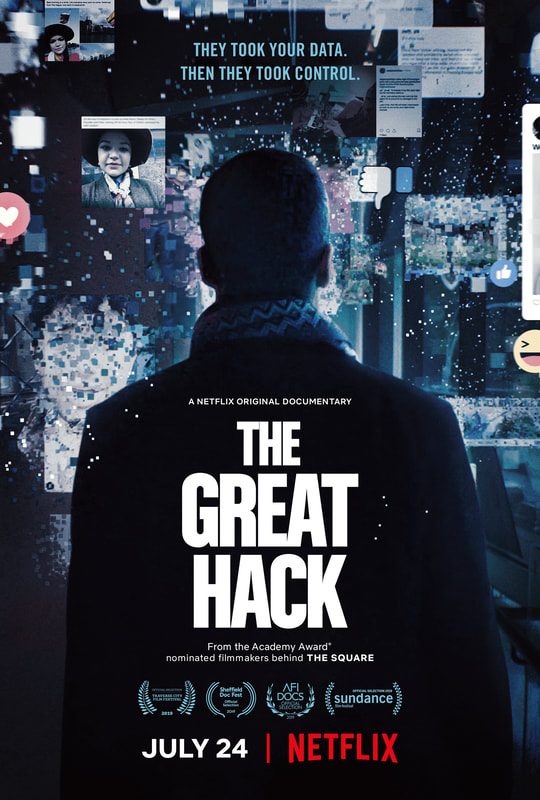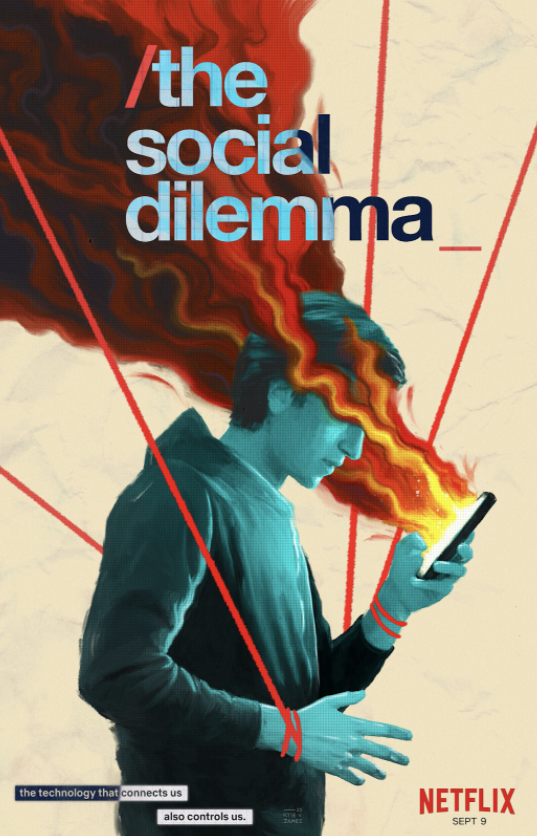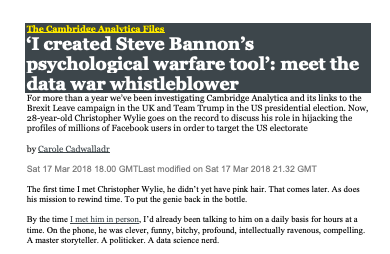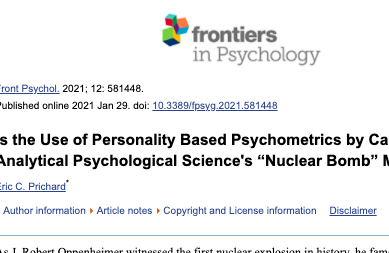Get to Know the Key Players
Alexander NixFormer CEO of Cambridge Analytica; former director of Strategic Communications Laboratory (SCL) Group, Cambridge Analytica's parent company.
|
Christopher WileyData consultant who worked at Cambridge Analytica; widely known as the whistleblower on CA's operations. Author of MindF*ck: Cambridge Analytica...
|
Mark ZuckerbergFounder and creator of Meta Platforms, and most importantly, Facebook. Media proprietor, internet entrepreneur, and philanthropist.
|
Steve BannonFormer White House chief strategist under the Trump Administration (7 mos). Former VP of Cambridge Analytica and investment banker.
|
Robert MercerComputer scientist, hedge fund manager, and former primary investor in Cambridge Analytica. AI developer and former CEO of Renaissance Technologies.
|
Brittany KaiserFormer business development director at Cambridge Analytics. Participated in the making of Netflix's The Great Hack, and authored a book about her experience.
|
Familiarize Yourself
*pulled from Wikipedia and personal knowledge*
Psychographic SegmentationPsychographic segmentation breaks down users into segmented groups based on psychological characteristics including subconscious or conscious beliefs, values, lifestyle, social status, opinions, and activities. This makes users easier to predict, and therefore, influence.
|
MicrotargetingMicrotargeting, is most often used by political election campaigns. It includes direct marketing datamining teqchniques that involve predictive market segmentation (psychographic segmentation). It is used by the United States political parties to discover where people lie on the political spectrum, track individual voter intention and history, and identify potential supporters
|
Targeted AdvertisingTargeted advertising is a way for marketers to present consumers with ads that reflect their specific traits, interests, and shopping behavior. This is done by using psychographic data.
|
Data MiningData mining is a process of extracting and discovering patterns in large data sets involving methods at the intersection of machine learning, statistics, and database systems.
|
The Story of Cambridge Analytica
The story of Cambridge Analytica, in my opinon, is the most scandalous journey into the rabbit hole of data, manipulation, strategy, and polarization to have ever occurred.
Strategic Communications Laboratory Group SCL formed a sub-segment of their company called Cambridge Analytica. Here they focused on military defense strategy, political strategy, and social strategy all using data—more specifically, psychographic data, data formed by tracking behavior over time through different platforms that has the ability to predict behavior, creating the opportunity for incredibly smart targeting.
This is not just a story of outcome and effect, but also the turmoil of our ability to think individually. There were horrible crimes against humanity and democracy committed and not enough people understand or recognize the destructive future it is creating.
Christopher Wiley was a data scientist who worked directly on the methodology behind Cambridge Analytica’s tactics. He describes his story upon reaching the point in his career where looking back on his accomplishments felt more like failing humanity. We are in the midst of consistent psychological warfare that has been so carefully hidden within our every day technologies; in how we meet people, make friends, date, go to therapy, research, learn, and entertain ourselves. The internet and our favorite platforms, Twitter, Facebook, Instagram, Reddit, etc. were created to connect us to each other, but now, we’re living in a time where it is the most successful polarizing and dividing attention grabber.
We are so consumed by our intake of content that we lack individual thinking. We hear one 30 second story from the news, see that same idea perpetuated on our social media, hear our friends speaking about it, and it becomes something that has resonated with us, that we don’t tend to look much further. And, data is at the heart of it.
Data is the most valuable thing on the planet, surpassing oil in 2017…whoever controls that data, controls us. Cambridge Analytica had the people, resources, and ideas that were so strong, smart, and accessible, that they could make anything a reality. Including manipulating political elections, and not just in the United States.
In fact, Cambridge Analytica, while they did interfere with Ted Cruz’s campaign and of course, the 2016 U.S. Election, they also played vital roles in behavioral shifts in voters in Kenya, the Philippines, Trinidad and Tobago, the United Kingdom in Brexit, and more.
Cambridge Analytica used tactics that focused on deception, manipulation, and polarization. Chris Wiley tells that story.
Facebook and Cambridge Analytica
As anyone can deduce, Facebook is incredibly powerful. It is also a gold mine of data. The relationship between Cambridge Analytica and Facebook began around 2015, but of course, they did not explicitly declare any relationship until 2018. Almost 90 million Facebook users had their personal data extracted and used against them.
Unfortunately for Facebook, additional information has since been uncovered suggesting that Facebook could have done more to stop the issue . But, what exactly is the issue? Cambridge Analytica began Project Alamo, their major targeting mission towards Americans. First they worked with Ted Cruz’s campaign. A man who started at the bottom of the barrel in terms of public interest turned to the runner up for the U.S. Republican candidate for the 2016 election, all because of incredibly intuitive data plays by Cambridge Analytica.
Cambridge Analytica operated with over 5,000 data points on each Facebook user compromised. Their tactics did less to focus on the most polarized users on Facebook’s platform, instead, they focused on the “persuadables.” People deemed easily impressionable by a categorization system Christopher Wiley helped create. This data came from personality quizzes administered to hundreds of thousands of Facebook users. Those tests gave Cambridge Analytica the ability to not only get a front row seat into certain user’s personalities, but they also gave access to each respondent’s entire friend base. Meaning, if I took the test, my 1200 Facebook friends’ data would also be shared with the SCL teams. They monitored general data like age and birthday, gender, location, but they also focused in on data like who you and your friends interact with, and how you do so, what you post, what’s going on in your life, and more. This data built psychographic profiles that modeled characteristics and personality traits.
All of this accessibility is because Facebook allowed the Cambridge Analytica quiz application. Facebook removed the quiz but demanded Cambridge Analytica confirm that all data was deleted. According to testimony from Brittany Kaiser, Cambridge Analytica employees were told that Facebook data was deleted from their processes, of course, they were not. And Wylie explained that Facebook only asked to some data to be deleted, in fact, only the data gathered over one month.
Facebook has always denied giving Cambridge Analytica data, yet it’s safe to assume otherwise based on this book, formal testimony, and staggering evidence trails reported on for years; raw, untouched copies of the data were still available online in 2018.
Steve Bannon, Cambridge Analytica's former Vice President and the former White House Chief Strategist under the Trump Administration, played a major role in how Cambridge Analytica would deploy these Facebook personality quizzes and how they would strategically use them to gain higher numbers in the polls. According to reports by the Washington Post, "Donald Trump will be president thanks to 80,000 people in three states" reads a headline. Meaning less than 80,000 people actually determined the 2016 U.S. Election. Those 79,646 votes are a great example of how Cambridge Analytica used psychographic data to determine who those "persuadables" were. Another example of their power, remember "Crooked Hillary" with the little handcuffs posing as the 'O's? That was created by Cambridge Analytica. Many of their tactics that influenced hate and polarization.
At the end of the day, people accept the terms and conditions of Facebook without reading them, and by doing so, they are providing their information. According to Facebook, no servers or systems were hacked or infiltrated.
Unfortunately for Facebook, additional information has since been uncovered suggesting that Facebook could have done more to stop the issue . But, what exactly is the issue? Cambridge Analytica began Project Alamo, their major targeting mission towards Americans. First they worked with Ted Cruz’s campaign. A man who started at the bottom of the barrel in terms of public interest turned to the runner up for the U.S. Republican candidate for the 2016 election, all because of incredibly intuitive data plays by Cambridge Analytica.
Cambridge Analytica operated with over 5,000 data points on each Facebook user compromised. Their tactics did less to focus on the most polarized users on Facebook’s platform, instead, they focused on the “persuadables.” People deemed easily impressionable by a categorization system Christopher Wiley helped create. This data came from personality quizzes administered to hundreds of thousands of Facebook users. Those tests gave Cambridge Analytica the ability to not only get a front row seat into certain user’s personalities, but they also gave access to each respondent’s entire friend base. Meaning, if I took the test, my 1200 Facebook friends’ data would also be shared with the SCL teams. They monitored general data like age and birthday, gender, location, but they also focused in on data like who you and your friends interact with, and how you do so, what you post, what’s going on in your life, and more. This data built psychographic profiles that modeled characteristics and personality traits.
All of this accessibility is because Facebook allowed the Cambridge Analytica quiz application. Facebook removed the quiz but demanded Cambridge Analytica confirm that all data was deleted. According to testimony from Brittany Kaiser, Cambridge Analytica employees were told that Facebook data was deleted from their processes, of course, they were not. And Wylie explained that Facebook only asked to some data to be deleted, in fact, only the data gathered over one month.
Facebook has always denied giving Cambridge Analytica data, yet it’s safe to assume otherwise based on this book, formal testimony, and staggering evidence trails reported on for years; raw, untouched copies of the data were still available online in 2018.
Steve Bannon, Cambridge Analytica's former Vice President and the former White House Chief Strategist under the Trump Administration, played a major role in how Cambridge Analytica would deploy these Facebook personality quizzes and how they would strategically use them to gain higher numbers in the polls. According to reports by the Washington Post, "Donald Trump will be president thanks to 80,000 people in three states" reads a headline. Meaning less than 80,000 people actually determined the 2016 U.S. Election. Those 79,646 votes are a great example of how Cambridge Analytica used psychographic data to determine who those "persuadables" were. Another example of their power, remember "Crooked Hillary" with the little handcuffs posing as the 'O's? That was created by Cambridge Analytica. Many of their tactics that influenced hate and polarization.
At the end of the day, people accept the terms and conditions of Facebook without reading them, and by doing so, they are providing their information. According to Facebook, no servers or systems were hacked or infiltrated.
The Threat
The ability to use psychographic data gives immense power to data companies, social media platforms, advertising agencies, etc. That power is intense and manipulative. Psychographic data is incredible at its face value--it provides the most in-depth look into behavioral analysis. It is beautiful, but it is dangerous. It is threatening to us because we are no longer in total control of our ideologies, beliefs, values, voting tendencies, and even shopping habits.
The reason this is so imperative to us is because we are inevitably destroying democracy. Confirmation bias is an incredible threat to our society and its sustainability as a democracy. Confirmation bias is the tendency to hear or learn new information but only accept that information if it supports already existing beliefs--This concept, and plenty others, is widely examined in MindF*ck. The book depicts scenarios that illustrate how mindset plays into behavior.
For example, consider the debate over Medicare for All. Amelia is in support of Medicare for All, so she seeks out news clips, articles, and opinion pieces that affirm the need for Medicare for All, without researching what it might look like from the opposing side. Henry on the other hand, is incredibly opposed to Medicare for All, so he seeks out news stories, articles, and opinion pieces that align with his position. When Amelia sees a story about a man dying from diabetes due to a lack of insulin that could have been provided by the government under Medicare for All, she is confirming her belief that Medicare for All is incredibly important. However, Henry will interpret that story to support his current point of view of Medicare for All, which is in a negative light.
Confirmation bias plays a major role in interpretation. We are so overly consumed by our own beliefs that we don't realize half of those beliefs have been confirmed over and over again through social media and news outlets we rely on. We must not let platforms heavily rely on behavioral data through psychographic information because not only does it breach your own personal networks and those of others, but it also will influence, polarize, and manipulate you.
One major step of relearning and moving yourself away from confirming your biases depends on how you research. Start at the beginning. MindF*ck is so important because you learn how these tactics were created, developed, idealized; you get an in-depth look into what influenced the use of psychographic data, who played major roles like radical conservative media influencers to young, impressionable data scientists.
In fact, in a published study from 2017, many people are unaware of just how public the internet is, nor how the consumer market is positive and negative for user online interactions. We are trained to essentially just say yes. Yes to Terms and Conditions; Yes to Cookies; Yes to being experimented on; Yes to how our social media platforms look, function, and react to your actions. This is called learned helplessness, a psychological concept that depicts behavioral reaction as harmful but non escapable. We are somewhat powerless in these conditions; all we can do is ask questions. And, it all starts with reading a book like Mindf*ck: Cambridge Analytica and the Plot to Break America.
This book teaches us that without learning the processes of how our data is used against us, we will never regain our individuality; a staple of democracy and America.
The reason this is so imperative to us is because we are inevitably destroying democracy. Confirmation bias is an incredible threat to our society and its sustainability as a democracy. Confirmation bias is the tendency to hear or learn new information but only accept that information if it supports already existing beliefs--This concept, and plenty others, is widely examined in MindF*ck. The book depicts scenarios that illustrate how mindset plays into behavior.
For example, consider the debate over Medicare for All. Amelia is in support of Medicare for All, so she seeks out news clips, articles, and opinion pieces that affirm the need for Medicare for All, without researching what it might look like from the opposing side. Henry on the other hand, is incredibly opposed to Medicare for All, so he seeks out news stories, articles, and opinion pieces that align with his position. When Amelia sees a story about a man dying from diabetes due to a lack of insulin that could have been provided by the government under Medicare for All, she is confirming her belief that Medicare for All is incredibly important. However, Henry will interpret that story to support his current point of view of Medicare for All, which is in a negative light.
Confirmation bias plays a major role in interpretation. We are so overly consumed by our own beliefs that we don't realize half of those beliefs have been confirmed over and over again through social media and news outlets we rely on. We must not let platforms heavily rely on behavioral data through psychographic information because not only does it breach your own personal networks and those of others, but it also will influence, polarize, and manipulate you.
One major step of relearning and moving yourself away from confirming your biases depends on how you research. Start at the beginning. MindF*ck is so important because you learn how these tactics were created, developed, idealized; you get an in-depth look into what influenced the use of psychographic data, who played major roles like radical conservative media influencers to young, impressionable data scientists.
In fact, in a published study from 2017, many people are unaware of just how public the internet is, nor how the consumer market is positive and negative for user online interactions. We are trained to essentially just say yes. Yes to Terms and Conditions; Yes to Cookies; Yes to being experimented on; Yes to how our social media platforms look, function, and react to your actions. This is called learned helplessness, a psychological concept that depicts behavioral reaction as harmful but non escapable. We are somewhat powerless in these conditions; all we can do is ask questions. And, it all starts with reading a book like Mindf*ck: Cambridge Analytica and the Plot to Break America.
This book teaches us that without learning the processes of how our data is used against us, we will never regain our individuality; a staple of democracy and America.
Additional Resources
Preliminary Interview & Survey Study + Research Design
Coming Soon
If you like to watch...
Netflix: The Great Hack |
Netflix: Social Dilemma |
If you like to read...
Works Cited
Cadwalladr, Carole. "I created Steve Bannon’s psychological warfare tool’: Meet the data war whistleblower." The Guardian 17 (2018).
Kaiser, Brittany. Targeted: My inside story of Cambridge Analytica and how Trump, Brexit and Facebook broke democracy. HarperCollins, 2019.
Prichard, Eric C. "Is the Use of Personality Based Psychometrics by Cambridge Analytical Psychological Science's “Nuclear Bomb” Moment?." Frontiers in Psychology 12 (2021).
WYLIE, CHRISTOPHER. MINDF*CK: Cambridge Analytica and the Plot to Break America. RANDOM HOUSE, 2020.
The Great Hack. Directed by Karim Amer, Jehane Noujaim, Netflix, 2019.
Dym, Brianna, and Casey Fiesler. “Ethical and Privacy Considerations for Research Using Online Fandom Data.” Transformative Works and Cultures, vol. 33, 2020, https://doi.org/10.3983/twc.2020.1733.
Kosinski, M., et al. “Private Traits and Attributes Are Predictable from Digital Records of Human Behavior.” Proceedings of the National Academy of Sciences, vol. 110, no. 15, 2013, pp. 5802–5805., https://doi.org/10.1073/pnas.1218772110.
Kaiser, Brittany. Targeted: My inside story of Cambridge Analytica and how Trump, Brexit and Facebook broke democracy. HarperCollins, 2019.
Prichard, Eric C. "Is the Use of Personality Based Psychometrics by Cambridge Analytical Psychological Science's “Nuclear Bomb” Moment?." Frontiers in Psychology 12 (2021).
WYLIE, CHRISTOPHER. MINDF*CK: Cambridge Analytica and the Plot to Break America. RANDOM HOUSE, 2020.
The Great Hack. Directed by Karim Amer, Jehane Noujaim, Netflix, 2019.
Dym, Brianna, and Casey Fiesler. “Ethical and Privacy Considerations for Research Using Online Fandom Data.” Transformative Works and Cultures, vol. 33, 2020, https://doi.org/10.3983/twc.2020.1733.
Kosinski, M., et al. “Private Traits and Attributes Are Predictable from Digital Records of Human Behavior.” Proceedings of the National Academy of Sciences, vol. 110, no. 15, 2013, pp. 5802–5805., https://doi.org/10.1073/pnas.1218772110.










